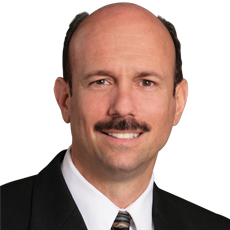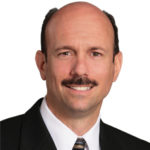
Every once in a while, I will speak with a fellow physician who admits that preserving the status quo in our healthcare system has some allure. After all, it’s how most of us have always received care and recovered from illness.
But the data show, and most of us know from personal experience, that it’s not working as well as it should—especially for those who need the most care. The traditional system of separate Medicare and Medicaid programs is the least person-centered, most fragmented, and least efficient option. Often, it robs people of a voice in their own care, as clinicians and loved ones pursue their own, well-intentioned views of a patient’s best interests. It shouldn’t continue and that is why 12 forward-thinking states launched national demonstration projects to improve care for this vulnerable, dually eligible population since the Affordable Care Act went into effect.
California is among them and enrolled more than 117,000 in its “Cal MediConnect” program across seven counties since 2014. An ambitious start to be sure, but nevertheless, just 14% of eligible beneficiaries signed up, due to resistance from some providers and caregivers, and a certain level of familiarity with existing programs among patients themselves. Experience with the current programs—whatever their inefficiencies and indignities—are known whereas a new, untested system with promises of integrated, coordinated, patient-centered care represents a lot of change. And change can be hard, even when it might be positive.
In order to keep the promise of bridging the care and financing for dually eligible Californians, The SCAN Foundation commissioned the Field Research Corporation to poll 2,500 people including enrollees in Cal MediConnect, those who chose to opt out, and those in regions without the program. Researchers looked at satisfaction with care, early experiences with Cal MediConnect, and confidence in getting needs met.
The results show that a majority of people in Cal MediConnect had broad satisfaction with their care, their choice of providers, and the coordination among their doctors, and expressed confidence in being able to get their questions answered.
The same polling, however, showed there is still much to do for Cal MediConnect to prove itself. People who opted out of the program and remained in traditional care reported higher levels of confidence about how to manage their health conditions, and satisfaction about the coordination of their care than demonstration enrollees. These results call for state leaders to redouble efforts to improve care coordination and communicate to patients and caregivers about the value of a coordinated care system.
If this can be done successfully, confidence will grow as enrollees see that their daily needs are met with dignity and respect, and they’ll begin to see they have a real choice in their care. This won’t happen overnight. We must continue listening closely to people so that we can understand their experiences in the traditional system, how they are interacting with Cal MediConnect, and the changes that might be required to make sure care is becoming more integrated, coordinated, and person-centered. A successful transition away from the traditional, broken Medicare-Medicaid system depends on it—because ultimately, none of us really believes the status quo is the best option, do we?
Bruce Chernof, M.D., is the president and CEO of The Scan Foundation.





